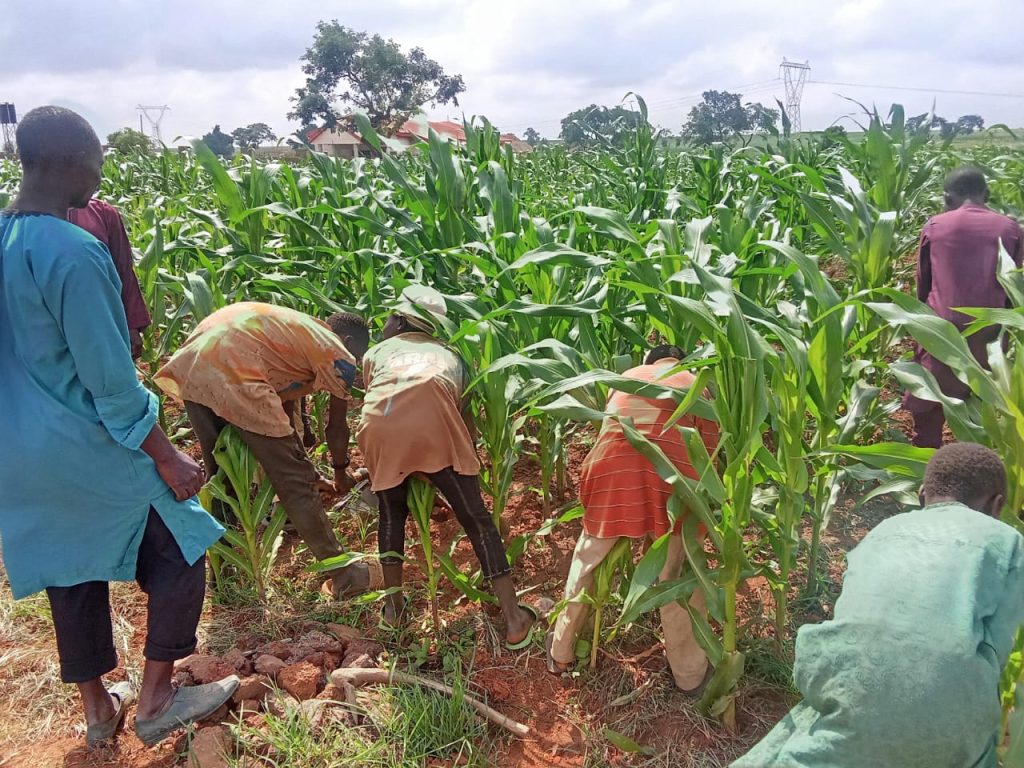…As Kaduna Farmers Celebrate TELA Maize Yield Success
By Ibrahim Hassan-Wuyo
The African Agricultural Technology Foundation (AATF) has stated that Nigeria is not at imminent risk of food shortages—so long as farmers adopt improved, climate-resilient, and pest-resistant seed varieties such as TELA Maize.
This assurance was given by Mr. Olawale Ojo, Hybrid Seed Market Development Manager at AATF, during a media tour of demonstration farms in Jaji, Kaduna State, where TELA Maize has been thriving under real farming conditions.
“Our goal at AATF is to ensure food security,” Ojo said. “Seed technology alone contributes up to 30 percent of a crop’s potential yield. Without improved seeds, food security will always be threatened. That’s why we’re encouraging the use of technologies like TELA Maize.”
According to him, the TELA Maize variety is genetically engineered to resist drought and pests—two major threats to Nigeria’s food production. He said the seed is readily available nationwide through licensed distributors and urged farmers to test the seed on their farms and judge the results for themselves.
Kaduna farmers who have adopted the TELA variety are already attesting to its benefits.
Malam Sabitu Abdullahi, a farmer from Danmarke in Jaji, Igabi Local Government Area, described TELA Maize as a game-changer. “It’s the best I’ve seen in terms of early maturity and yield. We harvest within 70 days,” he said.
Abdullahi noted that he planted the SAMMAZ 75 T strain and praised its suitability for replanting. He encouraged other farmers to secure the seeds early to prepare for the next planting season.
His wife, Aminat Sabitu, a fellow farmer, added that their maize output has more than doubled since switching to TELA Maize. “We used to get 10 bags from our land. Now we harvest 22,” she said. “The seed responds well to fertilizer, and it’s drought-resistant. I encourage more women farmers to give it a try.”
Twenty-seven-year-old Ismail Shaibu also shared a similar experience. “I used to get 7 bags. Now I get 13 using the same plot,” he said. “We no longer spray for pests, because the maize resists them naturally.”
Veteran farmer Saleh Ahmadu, with over two decades of farming experience, praised the variety’s resilience. “Pests don’t eat the leaves, and I now harvest twice what I used to on the same land,” he said.
Mr. Ojo confirmed that farmer feedback nationwide has been overwhelmingly positive. “Farmers are saving costs on insecticides thanks to pest resistance. This variety has been tested nationwide. We’re committed to helping farmers access technologies that improve yields and boost food security,” he concluded.
With broader adoption of high-yielding and resilient seed varieties like TELA Maize, AATF believes Nigeria can not only tackle the looming threat of food insecurity but also uplift its farming communities toward sustainable livelihoods.
The post With good seeds, Nigeria can avoid food shortage — AATF appeared first on Vanguard News.

